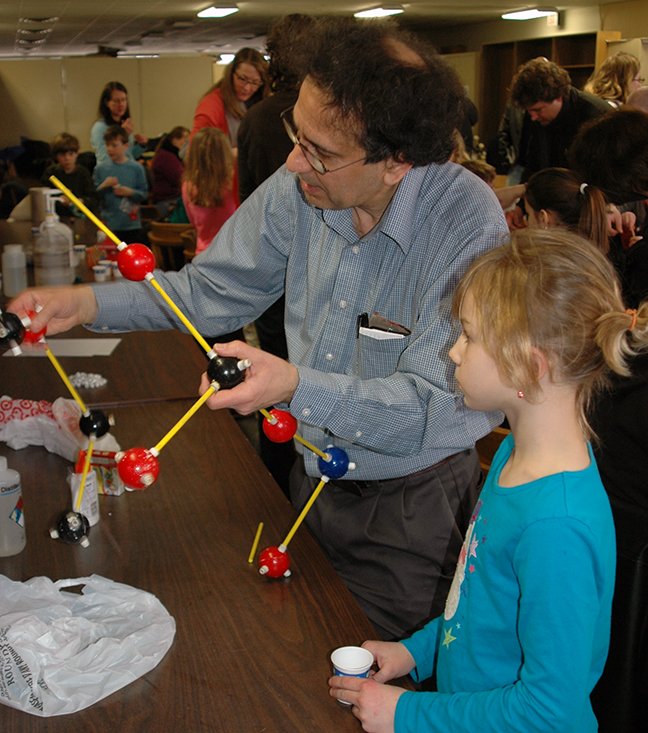Chemists in the Classroom
Our free Chemists in the Classroom program shows that chemistry is fun, and includes messages that anyone can do chemistry and that there are numerous career opportunities in chemistry-related fields. We do chemistry demonstrations and discuss chemistry careers in local K-12 schools and at community venues. Demonstrations include a number of interesting experiments that illustrate important chemistry principles, and some of the experiments are hands-on. Our discussions and information materials are specifically geared to the age and grade level of the participants. We also provide materials and advice to teachers.
There is no cost for the program. No special facilities are required. We provide all supplies. Our standard program consists of a one-hour presentation followed by a question-and-answer period; however, timing can be adjusted. We strive to visit about 50 schools a year, but our program is dependent on volunteers and we may not be able to accommodate all requests.
Information needed
- your name
- name of the organization or school that you represent
- full address where the program will be taking place
- how long you would like the presentation to last
- audience demographics—number of people, ages, science knowledge background
- contact information—phone number and email address
Advice for teachers or group leaders
How to prepare for a visiting scientist
Be as specific as possible about what you need. Consider the size of your group: a lab experience is not practical for more than 15 students. Volunteers are needed for hands-on experiments and demonstrations so involve parents in your activities.
Preparing students
integrate your chemistry lessons with other curriculum areas such as history, geography, health, and language. Don't worry about not having all the answers, and allow the students to find out the answers for all of you. One idea is to develop a bibliography of useful and readily available information sources. Emphasize the positive impact of chemical research and industry on your students' lives: all matter in the biosphere is chemical, including the students' bodies, food, etc.; we are all directly affected by chemical processes; and we need to understand and respect natural phenomena.
Creating a safe environment
Ensure that you understand the safety precautions required for chemicals used in the experiments. Model the correct safety procedures such as wearing proper safety equipment, including gloves, goggles, and lab coats.
